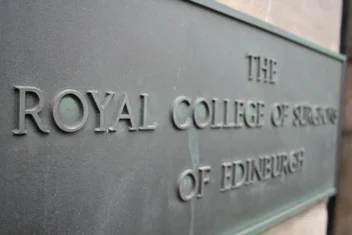Featured Press Statements
Press Statements Library
RCSEd responds to article in The Times – Representation of women in surgery
The Royal College of Surgeons of Edinburgh is deeply concerned by a recent article published in The Times (1 May), authored by Martin Samuel, which perpetuates outdated and damaging stereotypes regarding orthopaedic surgeons.

RCSEd Reacts to News of Abolishing of NHS England
Reacting to the news that NHS England is to be abolished, Prof Rowan Parks, President of the Royal College of Surgeons of Edinburgh said. “Given that 12,500 of our members and fellows are based in England, we are naturally concerned of the potential impact the abolition of NHS England will have on surgical training and service delivery in England.

Achieving Gender Parity in Licensed Doctors
The Royal College of Surgeons of Edinburgh (RCSEd) President, Professor Rowan Parks, responds to figures from the GMC that show that there are more women doctors than men, and more doctors from ethnic minority backgrounds than white doctors working in the UK.
General

RCSEd Dental Dean Responds to Launch of Supervised Toothbrushing Scheme for Young Children in Deprived Areas of England
The Royal College of Surgeons of Edinburgh (RCSEd) Dental Dean, Professor Grant McIntyre, Dean of the Faculty of Dental Surgery (FDS) at RCSEd, responds to launch of supervised toothbrushing scheme for young children in deprived areas of England.

RCSEd Dental Dean Responds to the Government Announcement of 700,000 Extra Urgent Dental Appointments
The Royal College of Surgeons of Edinburgh (RCSEd) Dental Dean, Professor Grant McIntyre, Dean of the Faculty of Dental Surgery (FDS) at RCSEd, responds to the government announcement of 700,000 extra urgent dental appointments.









